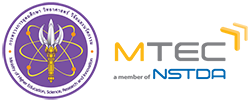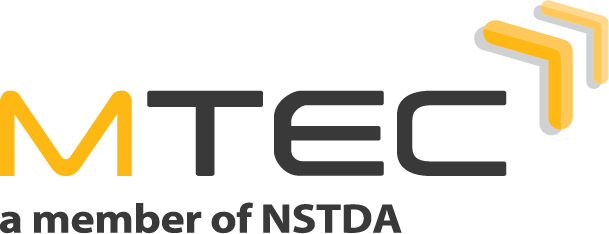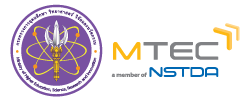
On Tuesday, September 17, 2024, at Kamolporn Room, 1st Floor, The Sukosol Hotel, Bangkok.
MTEC, NSTDA, in collaboration with the United Nations Environment Programme (UNEP), organized a seminar titled ‘Dialogue on Life Cycle Approach to Addressing Plastic Pollution.’ The seminar aimed to provide an overview of Life Cycle Assessment (LCA), demonstrate the practical application of its principles and showcase best practices from stakeholders at various levels. The event also sought to equip participants with the knowledge and tools necessary to implement effective plastic management strategies in alignment with future international agreements, particularly legally binding measures addressing plastic pollution, including marine pollution. Additionally, the seminar provided an opportunity for participants to share their views and contribute to policy-making efforts to tackle plastic pollution in Thailand.
In the opening session, the event was honored by Ms.Marlene Nilsson, Deputy Regional Director for Asia and the Pacific of the United Nations Environment Programme (UNEP) and Representative for Thailand, who delivered a welcome address to the participants. Dr. Asira Fuongfuchat, Deputy Director of MTEC, officially opened the seminar. The event also featured expert speakers from key partner organizations in Thailand, including the Pollution Control Department, the Ministry of Natural Resources and Environment, the Public Private Partnership for Sustainable Plastics and Waste Management (PPP Plastics), the Federation of Thai Industries, and MTEC. International speakers Dr. Llorenç Milà i Canals from the United Nations Environment Programme (UNEP) and Dr. Phatchari Mankong from the Technical University of Denmark (DTU) also participated in the discussions and shared their insights.


The event included presentations on topics such as ‘What is a Life-Cycle Approach?’, ‘Government Policy Framework,’ ‘STI (Science, Technology, Innovation) Solutions for Plastic Pollution,’ ‘Private Sector Perspectives,’ and ‘Avoiding Regrettable Substitutions with an LCA Tool: USEtox.’ The seminar concluded with a panel discussion, offering public and private sector participants the opportunity to share their views on ‘Options for Strengthening the Use of LCA in Thai Policy.


Dr. Llorenç Milà i Canals
United Nations Environment Programme: UNEP
Topic: 1. What is a Life-Cycle Approach, and how is it applied in policies to address plastic pollution?
2. What is LCA? Using LCA to compare plastic product options and to inform ecodesign decisions
Ms. Wassana Jangprajak
Pollution Control Department, Ministry of Natural Resources and Environment
Topic: Government Policy Framework: Thailand’s Roadmap & Action Plan on Plastic Waste Management and “Illustration of LCA use to inform Sustainable Public Procurement: Green Public Procurement”


Dr. Witchuda Daud
National Metal and Materials Technology Center (MTEC), NSTDA
Topic: STI (Science, Technology, Innovation) solutions for Plastic pollution
Mr. Veera Kwanlertchit
Public Private Partnership for Sustainable Plastic and Waste Management (PPP Plastics)
Topic: Private sector perspectives: Public Private cooperation to achieve the plastic close loop


Mr. Paradorn Chulajata
Plastic Industry Club, The Federation of Thai Industries
Topic: Private sector perspectives: Challenge and opportunity of EPR for plastic business
Dr. Phatchari Mankong
Technical University of Denmark (DTU) (Online)
Topic: Avoiding Regrettable Substitutions with an LCA tool: USEtox
Following the seminar, a focused meeting was convened between the Life Cycle Inventory and Data Applications for Sustainability and Trade Research Team (LIDAST), the Technology and Informatics Institute for Sustainability (TIIS), the National Metal and Materials Technology Center (MTEC), and the United Nations Environment Programme (UNEP). The discussion centered on reviewing feedback and suggestions from the event and outlining recommendations for future activities. The aim is to create a clear path forward for collaborative efforts to address plastic pollution in Thailand, ensuring these initiatives align with international legally binding measures on plastic pollution, including marine environments, and fostering cooperation across all sectors in Thailand.









